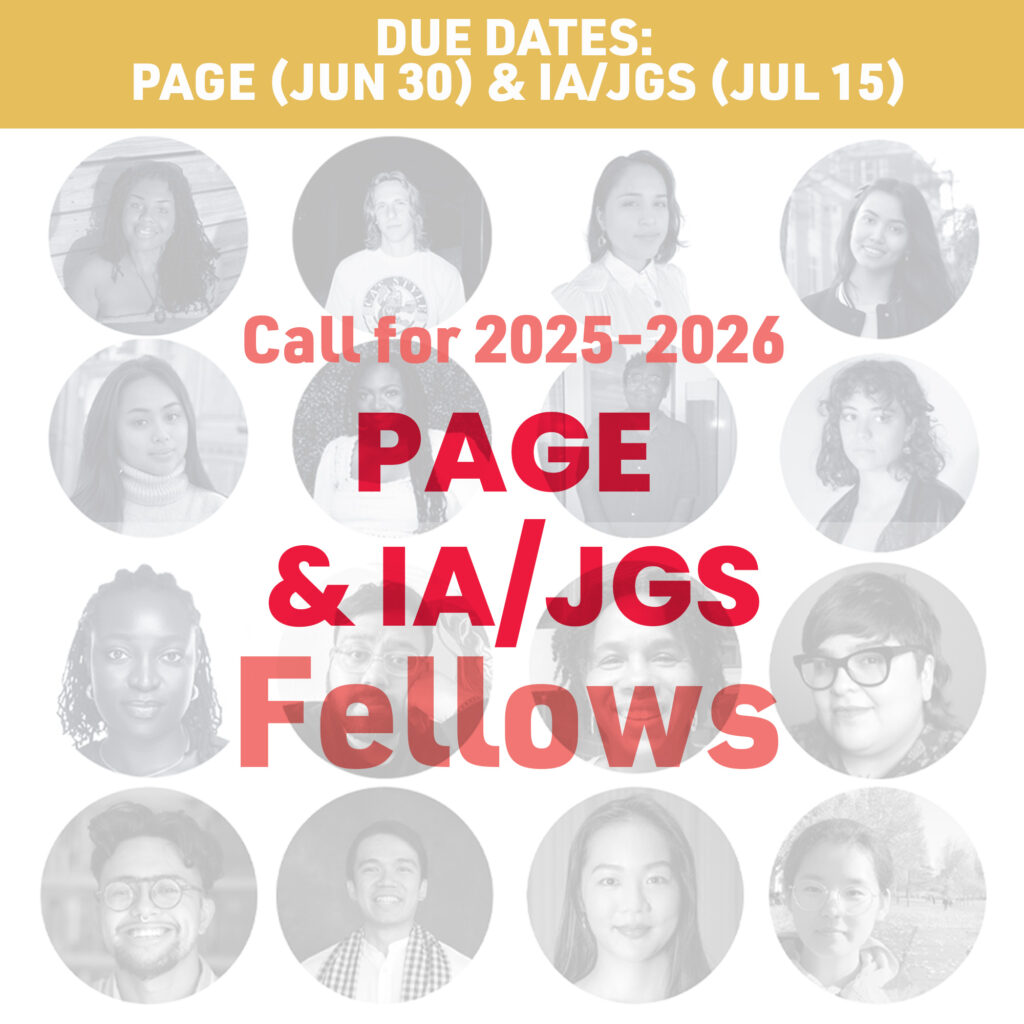Spotlight on Emerson College’s Amplify & Ignite Symposium
In March, IA member Emerson College in Boston hosted three days of workshops, panel discussions, presentations, working groups, and dialogue about our questions, curiosities, and work at the intersection of performance, community building, education and justice.
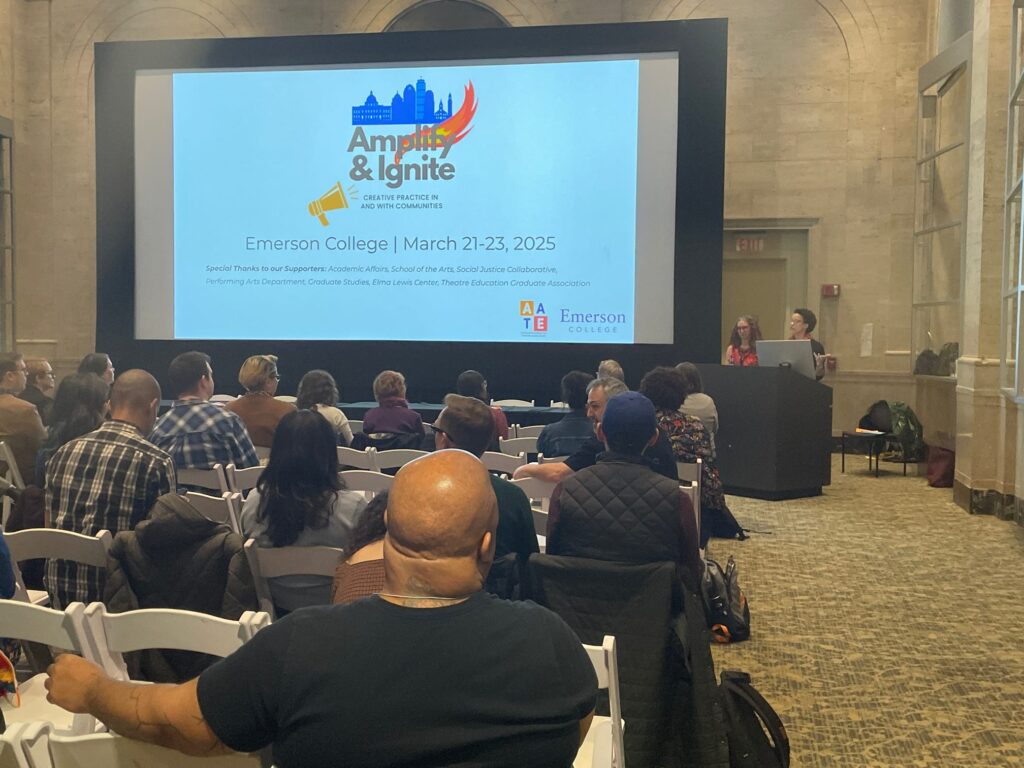
The “Amplify & Ignite: Creative Practice in and With Communities” symposium was an intimate gathering presented by the American Alliance for Theatre Education to foster long-term relationships among theatre educators, practitioners, and scholars while building communities of practice.
Amplify & Ignite was co-organized by Lizzy Cooper Davis, Associate Professor and Graduate Program Director at Emerson College and member of IA’s National Advisory Board. Davis shared,
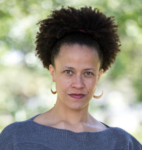
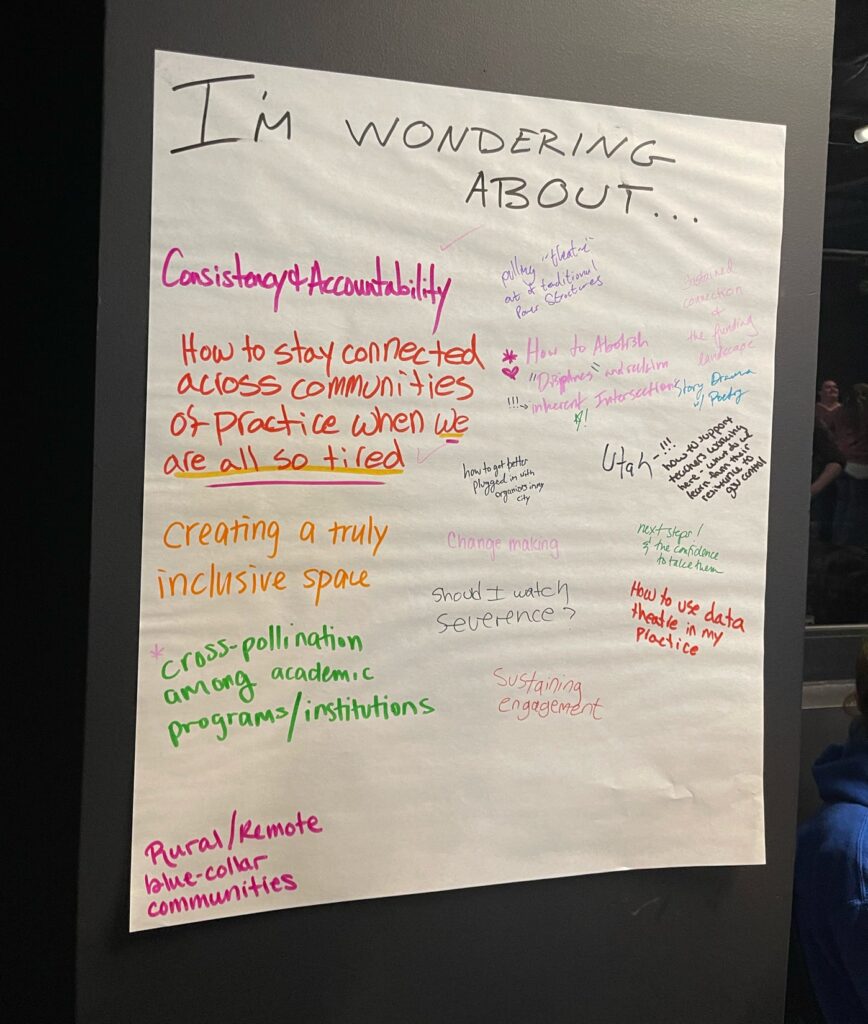
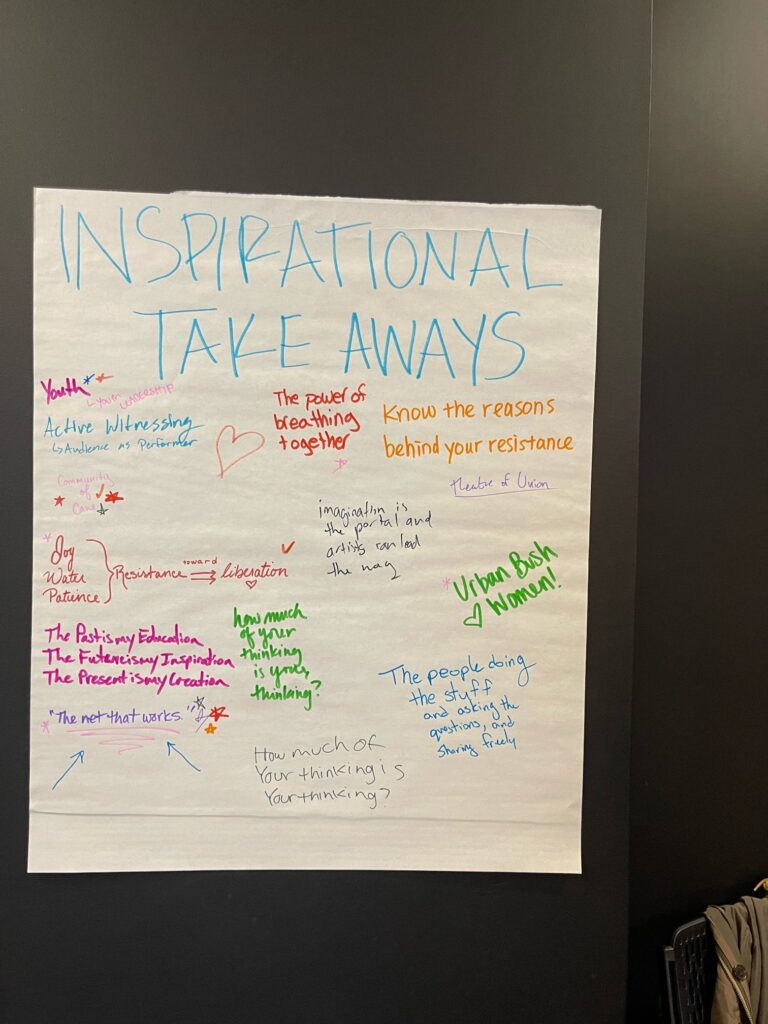
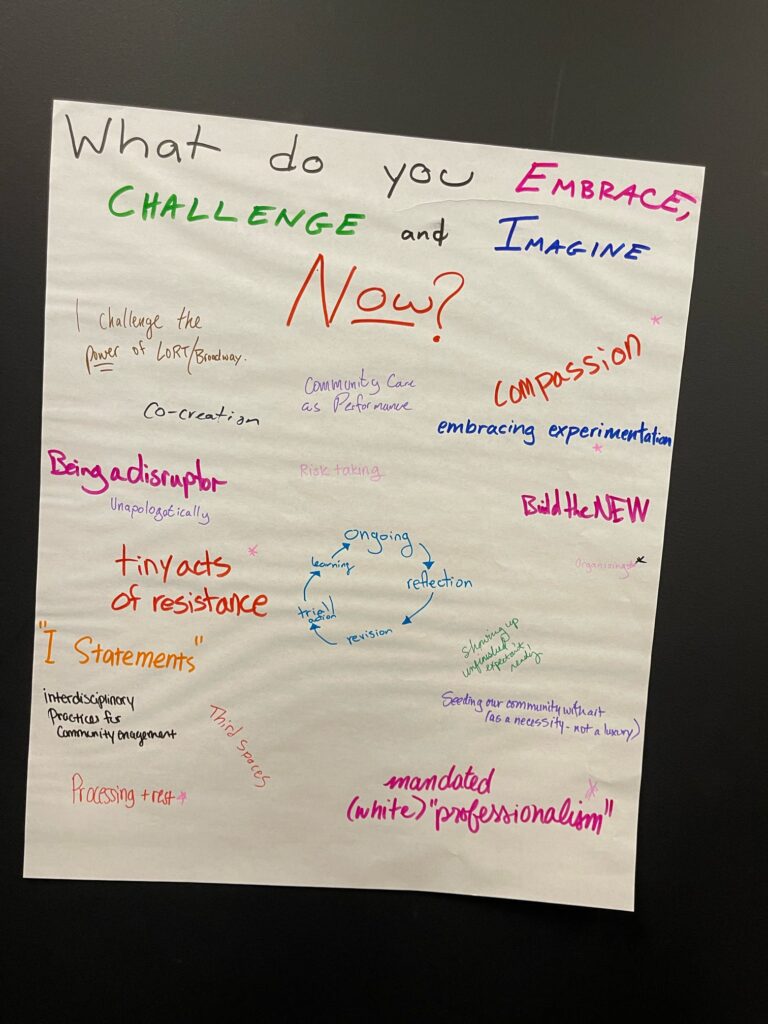
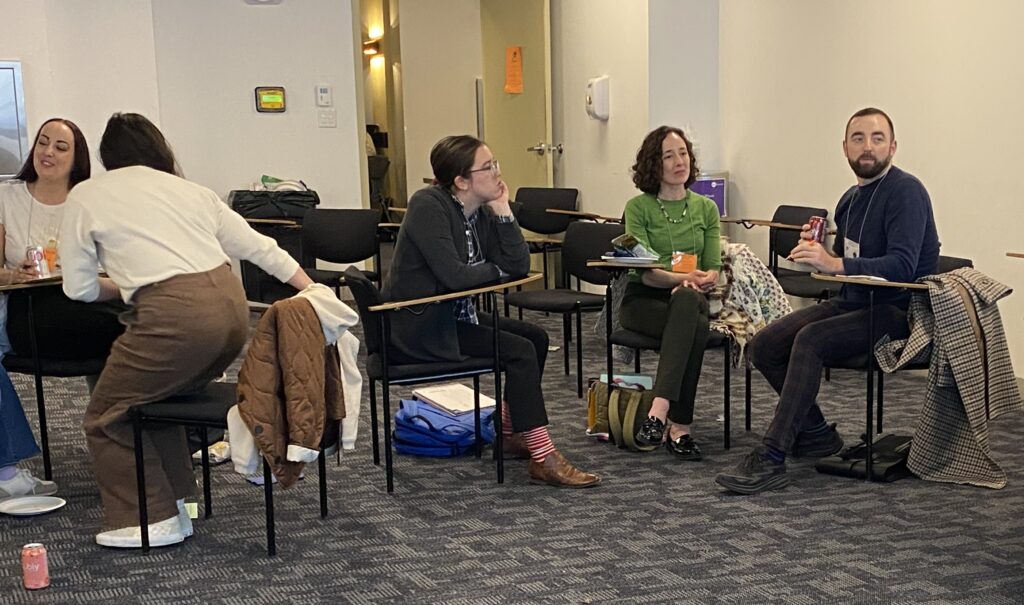
Across three days participants enjoyed six concurrent sessions and four communities of practice meetings created for K12 educators, community-engaged artists and practitioners, and researcher or university faculty and staff. IA Managing Director Stephanie Maroney attended the symposium and offered a workshop titled, Collective Learning and Play with the Imagining America Public Scholar Tools. In the session she shared findings from IA’s Leading and Learning Initiative action research project and invited co-learning and collective dialogue with the IA Public Scholar Conversation Cards. Discussion focused on the set of “looking ahead” cards that prompted participants to consider the role that higher education could or should play in the ongoing struggles for racial, environmental, social and economic justice.
The opening keynote panel captured the spirit of the symposium with an engaging conversation about creative practices in and with communities in Boston moderated by Michael Bobbitt, Executive Director of Massachusetts Cultural Council. Bobbitt shared the astounding fact that there are 15,000 arts organizations in Massachusetts, creating a rich environment for community engagement in the state. Panelist Alison Yueming Qu 曲悦鸣, Co-Founder and Executive Director of CHUANG Stage, expanded on that point by sharing the innovative ways her work with CHUANG Stage has thoughtfully crafted multiple points of community engagement in theater productions, including sharing food before events, inviting different opening artists at each performance, and leaving space for people to linger and discuss after.
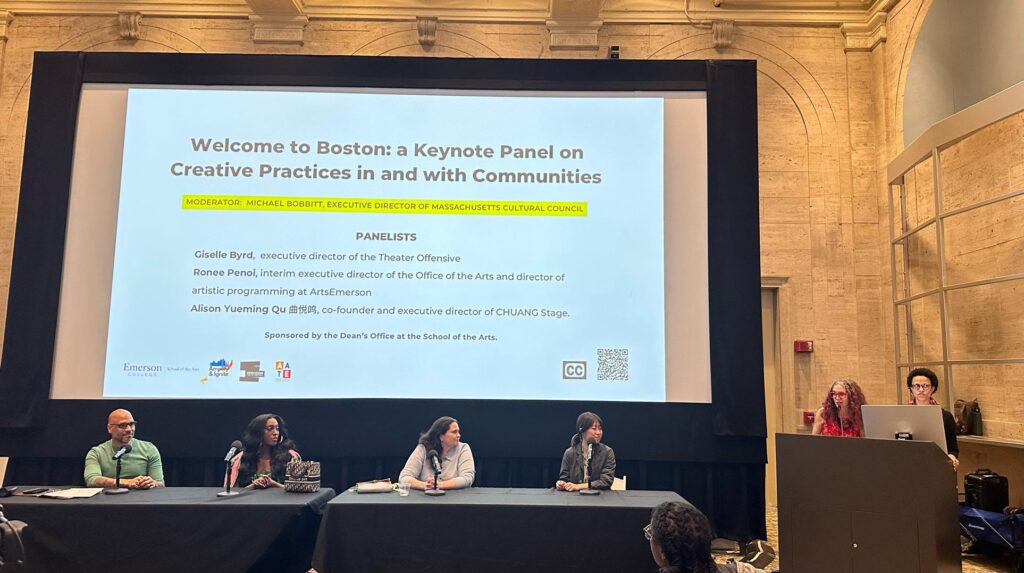
Ronee Penoi, Interim Executive Director Office of the Arts at Emerson College and ArtsEmerson and Director of Artistic Programming at ArtsEmerson, exhorted the audience to “shift the center of gravity” in artistic productions so that the work does not feel transactional between artistic producers and communities. Instead, she offered a vision of solidarity where we become champions of each other’s work and where we create structures of relation and accountability that reaffirm the central role of art in global movements for justice.
Giselle Byrd, Executive Director of the Boston-based Theatre Offensive, powerfully captured the heart of the event and the panel discussion, sharing, “Art is not a luxury” and that the joy and fun we find through art is in “calling out the white supremacy at the root of systemic structures.” As the first Black trans woman to lead a regional theater company, Byrd draws strength from the creativity and resistance of trans artists and activists as well as the vibrant history of The Theatre Offensive.
The Theatre Offensive is part of a lawsuit filed by the ACLU against the National Endowment for the Arts in response to new rules imposed by the current administration requiring applicants to excise “gender ideology” in their work. Byrd encouraged participants, as “experts in creativity,” to fight the right-wing “playbook of isolation and overwhelm” and strengthen our advocacy muscles to connect, listen, and build collective power.
This message, and the entire Amplify & Ignite Symposium, is a fortifying reminder that creative workers, artists, and community-engaged scholars have the necessary tools to both resist isolation and authoritarianism and to imagine and enact a more just world where connection is at the center.
Images courtesy of Lizzie Cooper Davis and Stephanie Maroney.
